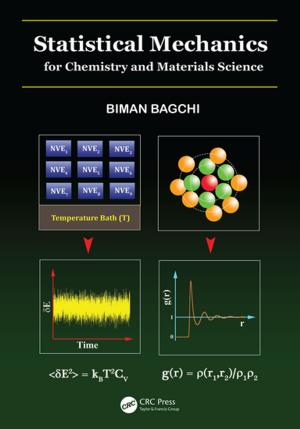Vitamins and Minerals in the Prevention and Treatment of Cancer
Nonfiction, Health & Well Being, Medical, Specialties, Oncology| Author: | Maryce M. Jacobs | ISBN: | 9781351094498 |
| Publisher: | CRC Press | Publication: | May 4, 2018 |
| Imprint: | CRC Press | Language: | English |
| Author: | Maryce M. Jacobs |
| ISBN: | 9781351094498 |
| Publisher: | CRC Press |
| Publication: | May 4, 2018 |
| Imprint: | CRC Press |
| Language: | English |
This book provides researchers and practitioners with a unique collection of current research on the role of vitamins and micronutrients in cancer prevention and treatment. New theories are discussed, including a hypothesis that dietary factors may protect against genetically predisposed cancers. Mechanisms by which different vitamins and minerals appear to inhibit carcinogenesis or cell transformation are described, including vitamins A, C, E, and selenium protection against oxidative stress by induction of enzymes as catalase and dismutase or inteference with free radical mechanisms; organosulfur compound inhibition of P450 activation enzymes or enhancement of detoxification enzymes; metal ion effects in the modulation of gene expression by site-specific binding of Zn-finger loop domains; B-carotene metabolite up-regulation of gap junctional communication between cells; and vitamin D3 elimination of amplified oncogenes or drug resistant genes. The book also reviews literature implicating a possible relationship between potassium and the control of cancer. Other information presented includes a discussion of contemporary technologies and data associating lipotrope deficiencies with alterations in xenobiotic metabolism, nucleic acid methylation, purine and pyrimidine synthesis, signal transduction, and chromosome anomalies.
This book provides researchers and practitioners with a unique collection of current research on the role of vitamins and micronutrients in cancer prevention and treatment. New theories are discussed, including a hypothesis that dietary factors may protect against genetically predisposed cancers. Mechanisms by which different vitamins and minerals appear to inhibit carcinogenesis or cell transformation are described, including vitamins A, C, E, and selenium protection against oxidative stress by induction of enzymes as catalase and dismutase or inteference with free radical mechanisms; organosulfur compound inhibition of P450 activation enzymes or enhancement of detoxification enzymes; metal ion effects in the modulation of gene expression by site-specific binding of Zn-finger loop domains; B-carotene metabolite up-regulation of gap junctional communication between cells; and vitamin D3 elimination of amplified oncogenes or drug resistant genes. The book also reviews literature implicating a possible relationship between potassium and the control of cancer. Other information presented includes a discussion of contemporary technologies and data associating lipotrope deficiencies with alterations in xenobiotic metabolism, nucleic acid methylation, purine and pyrimidine synthesis, signal transduction, and chromosome anomalies.















